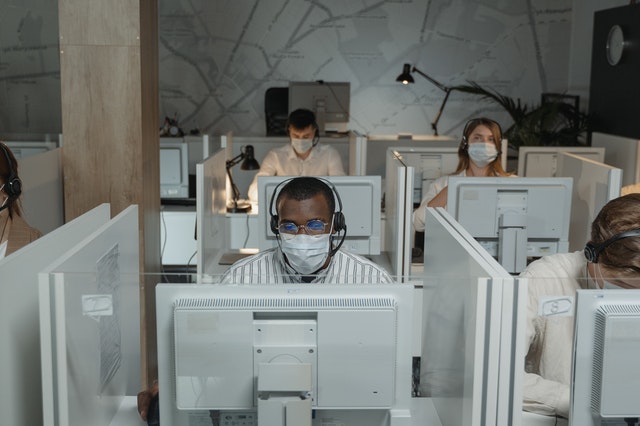Future-Ready Resilient Workforce
In an environment that is increasingly disruptive, resilience and future-readiness must be watchwords. Investment in data-driven workforce development must be given priority attention.
Why Invest in Resilience & Future-Readiness?
- 17% of executives said that over 60 percent of their workforce requires substantial reskilling for new roles today. [Accenture Consulting]
- 43% of executives said that over 60 percent of their workforce will require substantial reskilling for new roles over the next three years. [Accenture Consulting]
- 61% of workers would be willing to have technology collect data about them and their work in exchange for more customized learning and development opportunities. [Accenture Consulting]
- Companies should reinvent themselves to deliver more personalized employee learning experiences based on roles, job profiles and competency-based assessments. [Accenture Consulting]


- The Readiness Gap: 74% of organizations say reskilling the workforce is important or very important for their success over the next 12–18 months, but only 10 % say they are very ready to address this trend. [Deloitte Global Human Capital Trends]
- 73% of Deloitte Global Human Capital Trends survey respondents identified organizations as the entity in society primarily responsible for workforce development—outranking the responsibility of workers themselves, and far exceeding the deemed responsibility of educational institutions, governments, or professional associations and unions. [Deloitte Global Human Capital Trends]
- A system that invests not just in workers’ near-term skill needs but also in workers’ long-term resilience can help build long-term organizational resilience in a world where the only constant is change. [Deloitte Global Human Capital Trends]
- What is needed is a worker development approach that considers both the dynamic nature of jobs and the equally dynamic potential of people to reinvent themselves. To do this effectively, organizations should focus on building workers’ resilience for both the short and the long term—a focus that can allow organizations to increase their own resilience in the face of constant change. [Deloitte Global Human Capital Trends]
- Today, success increasingly depends on innovation, entrepreneurship, and other forms of creativity that rely not just on skills, but also on less quantifiable capabilities such as critical thinking, emotional intelligence, and collaboration. [Deloitte Global Human Capital Trends]
An Approach To Workforce Resilience
Consider baking resilience and future-readiness in your operations with this multi-dimensional plan.

A robust, integrated step-by-step plan
- Use Extended DISC®
data-collection tools to establish the skills that will be required in the future and conduct the related gap analysis. - The data from that exercise should act as a hub for a cross-section of HR and Talent Management activities.
- Deploy Extended DISC® Role Fit Recruitment & Selection assessments to get right people in right roles under right style of leadership.
- Incorporate Extended DISC® Role-related Behavioural DNA assessments in training programs to get best results.
- Beef up performance appraisals with Extended DISC® 90, 180 or 360 surveys.
- Keep your fingers on the pulse of the organization, including employee engagement with Employee Satisfaction Surveys.
- Develop a Fit-for-Purpose workforce by supporting Succession Planning with Extended DISC® Career Development & Succession Planning assessments.
- Support the development of high performing teams with Extended DISC® Team Dynamics Assessments,
- Pull it all together by implementing a Workforce Development Program that establishes essential role-related competencies, executes reskilling programs, prepares a cadre of future-ready leaders and builds resilience into the organization.
Climate & Employee Engagement Surveys
Keep your finger on the pulse of the organization by conducting a survey under any of the popular titles – Employee Satisfaction Survey; Employee Engagement Survey, Workplace Culture Survey or Organization Climate Survey.
We support the deployment of electronic surveys with built-in tracking and reporting. Save time and money!
Whatever the title, these surveys provide detailed insights into mindsets, concerns and desires of the workforce. A carefully crafted survey instrument can also tap into way forward suggestions and opportunities.
Climate & Employee Engagement Survey benefits include:
- Real-time capture of the mood of the workforce
- Insights into benchmarked staff satisfaction levels
- Measurement of employee engagement
- Identification of defining features of the organization (culture)
- Highlighting of problem areas
- Signaling leadership’s interest in engagement
- Addressing perennial communication issues
- Being a proxy for Training Needs Analyses
- Cross-unit/cross-period comparison
- Providing a blueprint for strategic planning & development
